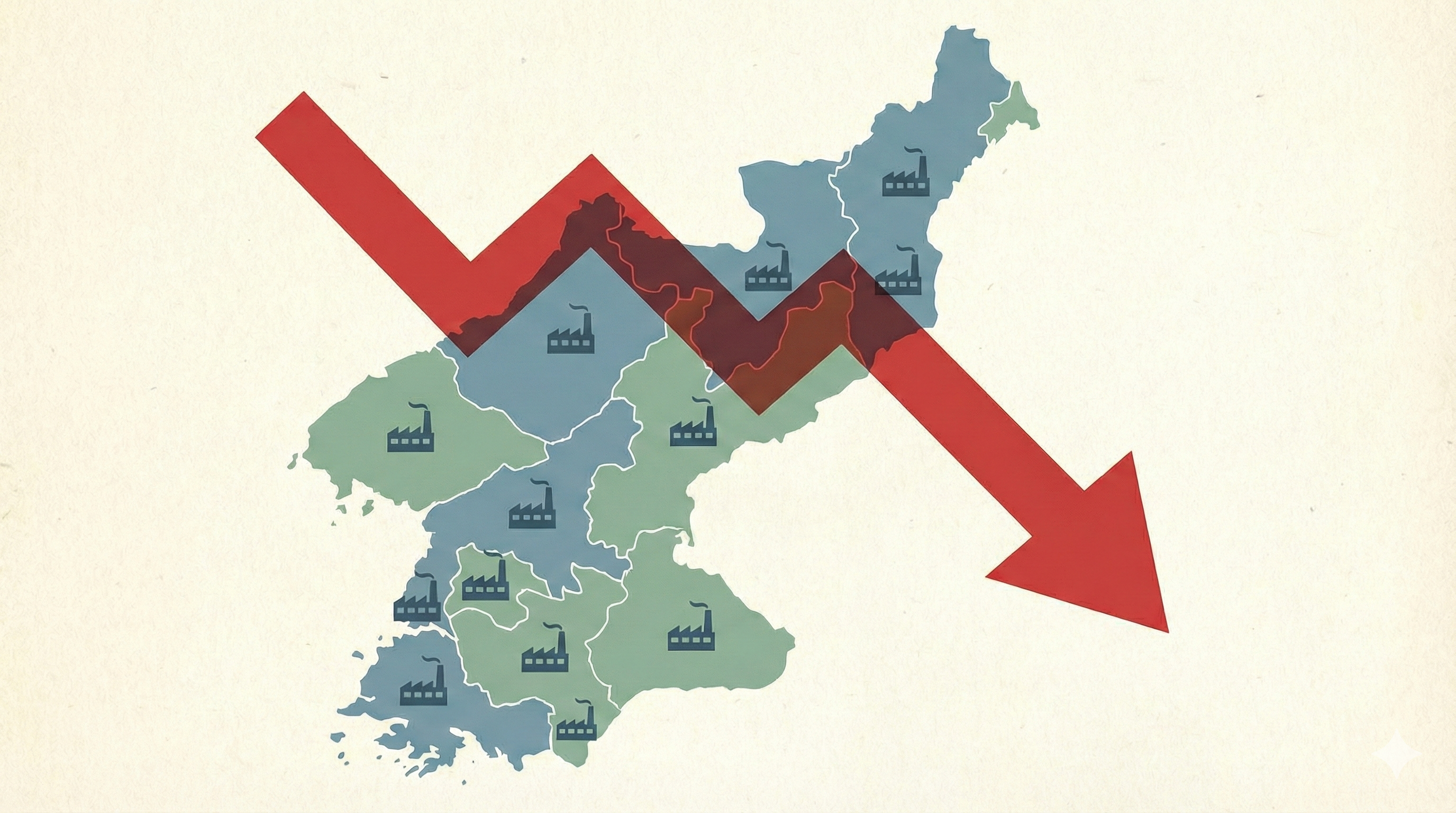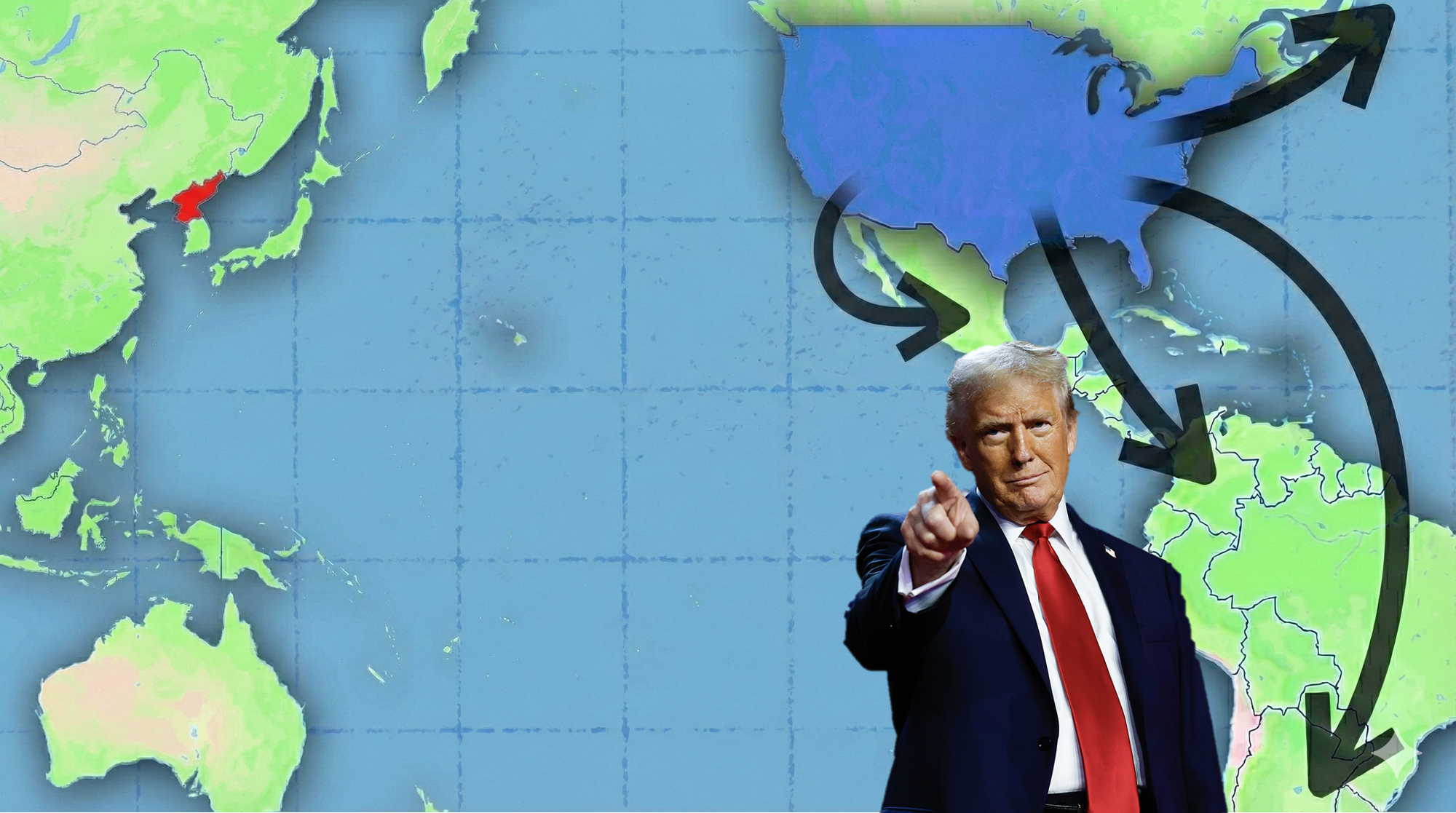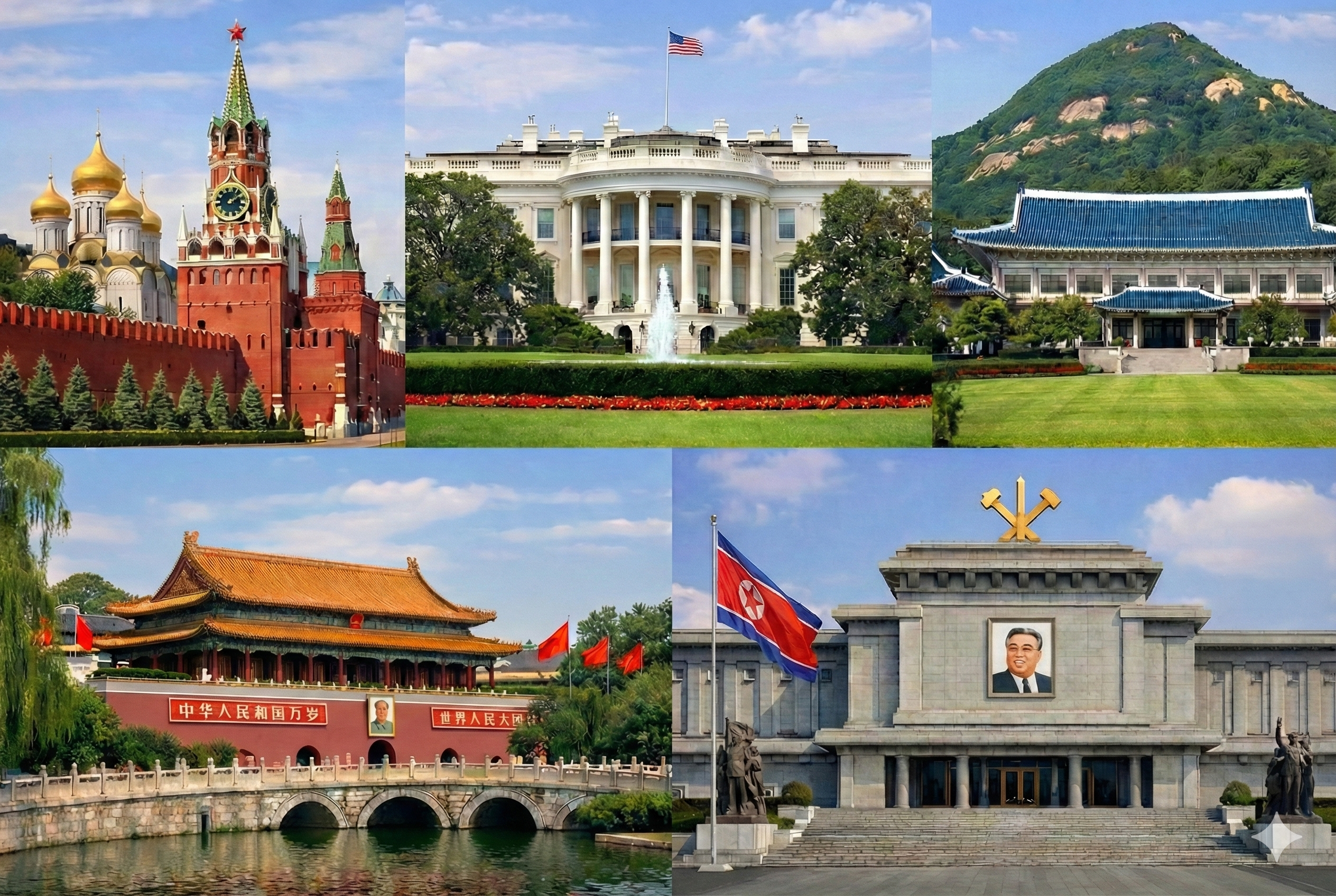As the Yoon Suk-yeol administration seeks to recover the ROK-U.S. alliance and strengthen solidarity between Washington and Seoul in full swing, attention is geared towards whether North Korea and China will maintain their close ties. Two key issues concerning the geopolitical transition in Northeast Asia pertain to strengthening the ROK-U.S. strategic alliance and ROK-Japan relations and the change in DPRK-China-Russia relations. The abovementioned transition largely entails the honeymoon phase between North Korea and China, a thaw in DPRK-Russia relations, and a quasi-alliance between China and Russia – Is this true? This article aims to investigate the current status of DPRK-China relations and its implications for the Yoon administration.
Recent Trends in DPRK-China Relations: Continuous Adjustment and Settlement
North Korea, which has reported zero COVID-19 cases so far, has recently seen a huge spike in infections. Since May 12th, the regime has issued regional and unit lockdowns. Jangmadang, restaurants and stores have all been closed. Over the past two weeks, the number of COVID-19 infected patients surpassed three million. North Korea has closed its borders again and suspended the railway freight service between Dandong and Sinuiju, which resumed earlier this year. This has been the biggest dilemma facing the Kim Jong-un regime. The Kim regime, which has denied all requests for dialogue since the failure of the Hanoi talks in February 2019, has emphasized self-reliance and austerity to the people. While this has been justified during the pandemic, Kim himself stated that “The spread of the malignant epidemic is a great turmoil to fall on our country since the founding.”
As a result, DPRK-China relations have been put to the test. Kim claimed on May 14th that “It is good to actively learn from the advanced and rich anti-epidemic successes and experience already gained by the Chinese party and people in the struggle against malicious epidemic.” This implies that North Korea is seeking support and is looking to bandwagon towards China. Beijing accepted the request for quarantine assistance. On May 16th, three large North Korean planes were deployed to urgently bring in supplies and medicines. This was the first flight operation in two years and four months since Pyongyang completely suspended its services in January 2020.
Pyongyang and Beijing’s leadership stayed in touch through the exchange of congratulatory messages even when human contacts and material exchanges have almost been suspended due to the COVID-19 lockdown. From Xi Jinping celebrating Kim Jong-un’s nomination as General Secretary last January to Kim Jong-un’s commemoration of the 100th anniversary of the Communist Party of China, the 60th anniversary of the signing of the North Korea-China Treaty of Friendship, Cooperation and Mutual Assistance, and exchange in celebratory messages for other celebrations, the two allies continued their “celebratory politics.” In addition, North Korea’s leadership issued statements or expert commentary advocating China on the issue of Taiwan, democracy, and human rights to bridge the gap in direct exchanges. This is manifest of sturdy rapport between China and North Korea in the face of intensifying U.S.-China competition.
Then, are DPRK-China relations stronger than ever? Is China the only country North Korea can depend on? I don’t think so. Sino-North Korea relations, as of now, are at a normal state. That is to say, the two countries are in the process of settling into a new strategic relationship in response to changes in the security environment. China’s quarantine support initiative for North Korea does not equate to closer ties between the two countries or an expansion of China’s influence over North Korea, as Pyongyang has historically never had and currently does not intend to move under Chinese influence. It has only temporarily approached China when necessary to overcome domestic challenges or obtain economic support.
The Nature of DPRK-China Relations: Balance of Strategic Interests and Symbiosis
Diplomatic relations between China and North Korea have fluctuated over time due to North Korea intentionally building tension on the Korean Peninsula. As China stepped up to “tame” the hermit kingdom, Sino-North Korean relations have been unstable. [1] The history of bilateral relations has been a series of cooperation and conflict. The Kim Jong-un era began with dependence and cooperation diplomacy in 2012, followed by its aspirations to seek independence to carry out nuclear tests since 2013. Then in 2018, the regime bandwagoned towards China and adopted a strategy of selective parallelism. It has now embraced a comprehensive expansion strategy. Then, have North Korea and China completely restored their traditional friendship? There is no evidence that the two countries have made a return to past alliances. They are still re-establishing their bilateral relations in line with changes in the security environment.
The essence of ever-changing DPRK-China relations lies in the balance of national interests and strategic symbiosis in three aspects. First, North Korea follows a principle of self-reliance and a balance in its China policy. Pyongyang has accumulated experience in independent diplomacy with Beijing through small and medium-sized disputes and the U.S.-China detente in the past. The Kim Jong-un regime also tried to strategically target both China and the U.S. from the beginning. From a larger perspective, this could be considered an upgrade that reflects the experiences and lessons of North Korea’s Northern Diplomacy, under which it pursued equidistant diplomacy between China and the Soviet Union during the Kim Il-sung period and Southern Diplomacy, which focused on improving relations with the U.S. and Japan. [2] However, due to the failure of the Hanoi Summit and Biden’s “calibrated approach,” only DPRK-China relations seem functional as of now. North Korea has, in fact, continued to develop nuclear weapons and upgrade ballistic missiles but has also built relations with China in a way that maximizes its economic interests. In the future, North Korea and China will also continue to develop a bilateral relationship of selective cooperation and conflict according to their respective strategic interests. [3] As long as Beijing and Pyongyang share strategic values, this will continue.
Second, Beijing adopted a strategy of inclusive involvement and maintaining influence on Pyongyang. For example, China has thoroughly used the denuclearization card to manage the U.S.-China conflict under the perception that the North Korean nuclear issue is a game between the U.S. and North Korea. When Washington and Beijing maintained cooperative relations, China pressured North Korea to denuclearize; however, amid increasing rivalry, it chose not to act. This is why it is difficult to expect China to play a game-changing role concerning the North Korean nuclear issue. In fact, Beijing tried to exert influence on United Nations’ sanctions regime and expand independent economic aid, but North Korea did not give in and chose to act independently. Likewise, Pyongyang would only bandwagon towards Beijing if necessary.
The third aspect concerns how much leverage North Korea holds in its choices. North Korea holds two cards it can exchange with China and the U.S. It will focus on cooperative diplomacy that emphasizes ideological unity with China as of now. However, in the long run, Pyongyang can leverage the U.S. to pressure China anytime in the future, just as it uses China as its guardian against the U.S. This is why China wants to keep North Korea under its influence and separate the North Korea issue from the nuclear issue.
Therefore, it is no longer realistic to limit DPRK-China relations into the framework of a blood alliance or traditional friendship. We should take a cool-headed approach that takes into account the reality of their bilateral relations. China is focusing on preventive management to increase its influence, while maintaining a strategic balance of interests in North Korea. On the other hand, Pyongyang seeks to secure its own space for survival by bandwagoning towards and using a dual strategy of dependence and distrust on Beijing. In this way, both China and North Korea exhibit characteristics of a symbiotic relationship that shares strategic interests in specific areas when necessary. In short, they are in a partnership in which they maintain a strategic symbiosis, notwithstanding constant conflict and cooperation.
Implications for the New Korean Government’s Strategic Challenges
The new government’s strategic tasks for its Northern policy are not only affected by the North Korea and China risks, but also variables of Sino-North Korea relations. First, the new government must manage the North Korea risk early on in its term. If the Yoon administration decides to adopt a hardline policy against North Korea to compensate for the failures of the Moon government’s appeasement policy, military tensions on the Korean Peninsula will rise. North Korea’s rejection of South Korea’s offer to provide quarantine support implies that it is not ready to communicate with the new government. The administration could also consider the joint participation of China or international organizations to operate a healthcare cooperation process that has been agreed upon by Seoul and Pyongyang. In addition, Seoul can also support medicines and quarantine supplies through international organization, providing indirect support or consortiums. [4]
Second, it is necessary to carefully review the China risk. During his visit to Seoul as a special envoy to the inauguration of President Yoon Suk-yeol, Vice President Wang Qishan called for proper handling of “sensitive issues” [5] between South Korea and China. This reflects China’s concerns on the possibility of South Korea bandwagoning towards the U.S., such as strengthening the ROK-U.S. alliance and trilateral ROK-U.S.-Japan cooperation. While China is optimistic that Yoon Suk-yeol’s 110 national tasks exclude the additional deployment of Terminal High Altitude Area Defense (THAAD), Beijing noted that “China will not make any changes or concessions on sensitive issues related to its major interests” through central media. In particular, Hu Xijin, former editor-in-chief of the Global Times, tweeted that “If South Korea takes a path of turning hostile against its neighbors, the end of this path could be a Ukraine.” This is why South Korea should adopt a cooperative mechanism for managing pending issues and potential conflicts between the two countries.
The third is the complex risks associated with Sino-North Korean relations. The government should adopt a customized crisis management solution based on the inherent factors of the China-North Korea conflict, such as the different ways in which the two countries perceive the North Korean nuclear issue and conflicting opinions on stability and unification on the Korean Peninsula. The administration should prevent the new geopolitical conflict from creating a South Korea-U.S.-Japan bloc and a North Korea-China-Russia bloc. Beijing’s role remains important in resolving the North Korean nuclear issue and crisis management on the Korean Peninsula. As the Xi administration has played a practical role in pressuring North Korea, which was effective in pushing Kim Jong-un to engage in the inter-Korean summit in 2018, it is important to keep in mind that China’s cooperation is important in inducing North Korea to come to the negotiating table. The Moon government has failed to engage China, which continues to engage in high-level dialogue with North Korea; the Yoon government needs to realize this.
Therefore, the Yoon government should accept China’s concerns on Seoul bandwagoning towards the U.S. and accept North Korea’s vigilant attitude towards humanitarian funding such as COVID-19 quarantine support as is. It should also strive to put a halt to North Korea’s prolonged dependence on China and create a momentum for improving North Korea-U.S. relations. In particular, it could be helpful for South Korea and China to cooperate and pursue collaborative projects with Pyongyang to improve the humanitarian situation in North Korea while securing unconditional preemptive support under the pandemic situation.
The Yoon administration is setting off under dire international circumstances. It is also “stuck” between the great power competition in Northeast Asian geopolitics. It is time for Seoul to employ a more strategic and principled diplomacy based on national interests in managing complex risks that involve ROK-China relations, inter-Korean relations, and DPRK-China relations. The following months to come will see a test of the Yoon administration’s diplomatic flexibility. Seoul should strive to establish a mechanism to expand the diplomatic strategic space with the U.S. and China. In addition, it needs to form a risk management strategy that reduces security costs and economic losses that come from the China risk and a misinterpretation of DPRK-China relations.■
[1] Shin, Bong Sup. 2021. “A Study on Strategic Choices and Responses between China and North Korea.” Ph. D. Diss., Hanyang University, 109-110.
[2] Hong, Eun-jeong. 2017. “Interactions between North Korea and China and Future Prospects in the Kim Jong-un Era.” Papers by New Researchers. Seoul: The Ministry of Unification, 66-68.
[3] Shin, Bong Sup. 2021. A Partnership of Conflict and Cooperation: Strategic Symbiosis between North Korea and China. Seoul: 21st Century Books: 5, 276-278.
[4] Kim, Ho Heung. 2022. “The COVID-19 Crisis facing Kim Jong Un's 10th anniversary: North Korea at the crossroads of a “Head on Breakthrough” or a “Compromise.”” INSS Issue Briefs, 356.
[5] “Sensitive issues” imply China’s concerns about Yoon Suk-yeol's diplomatic pledge, the ROK-U.S. alliance, ROK-U.S.-Japan trilateral cooperation, and the possibility of disregarding the “Three Noes” related to THAAD deployment.
■ Bong Sup SHIN is a Visiting Professor at Kwangwoon University. Previously, he was the Minister of the Korean Embassy in China, and a Consul General of the Korean Consulate in Shenyang China, where he examined every corner of North Korea-China relations and China's diplomatic policy. He is a managing director of the Korea Peninsula Development Cooperation Institute, an expert member of the Korea Development Bank (KDB) North Korea Policy Forum, an advisor to the Pyeongchang Peace Forum, and a visiting professor at Hallym University's Graduate School of Global Cooperation. He graduated from Seoul National University with a degree in Chinese literature, received a master’s degree from East Asian Institute of Taiwan Political University, and a doctorate from Hanyang University's Graduate School of International Studies. He has built a deep relationship with China throughout his life. He currently teaches Northeast Asian international relations, unification diplomacy on the Korean Peninsula. His books include Partnership in Conflict and Cooperation: Strategic Symbiosis between North Korea and China.
■ Typeset by Seung Yeon Lee, Research Associate
For inquiries: 82 2 2277 1683 (ext. 205) | slee@eai.or.kr




